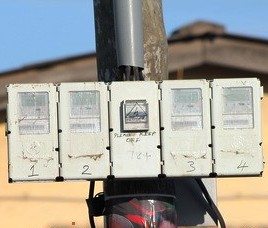E-Levy officially scrapped by Parliament

Parliament has today, March 26, 2025, voted to approve the repeal of the Electronic Transfer Levy Act, 2022 (Act 1075).
In a manner similar to the initial passage of the law in 2022, the House on Wednesday conducted the repeal process under a Certificate of Urgency, expediting the second reading, consideration, and third reading stages.
Speaking during the second reading stage, the Majority Leader, Mahama Ayariga, highlighted an observation made by the Finance Committee; that repealing the law would make GH¢2 billion available to Ghanaian citizens in the form of disposable income.
With Parliament’s approval, the Electronic Transfer Levy (Repeal) Bill, 2025, will be forwarded for presidential assent.
Under Article 106(7) of the Constitution, President John Dramani Mahama is expected to assent to the bill within seven days.
Background
The Electronic Transaction Levy (E-Levy) was introduced by the New Patriotic Party (NPP) government under President Nana Akufo-Addo through the Electronic Transfer Levy Act, 2022 (Act 1075).
Passed on March 29, 2022, after a contentious parliamentary process, the law imposed a 1.5% tax (later reduced to 1%) on electronic transactions, including mobile money payments, bank transfers, and merchant payments.
The levy aimed to widen Ghana’s tax net by targeting the informal sector and was projected to generate GH¢4.5 billion annually to address fiscal deficits amid economic challenges, including the 2022 debt crisis.
Implementation began on May 1, 2022, following approval by a slim NPP majority (137-136) in Parliament, despite a walkout by the opposition National Democratic Congress (NDC) Minority.
The E-Levy faced immediate backlash. Public protests erupted, driven by groups like #NoToELevy, citing its burden on low-income Ghanaians reliant on mobile money.
A 2022 ISSER study found that 83% of Accra’s informal workers disapproved, and compliance remained low—by December 2024, revenue had reached only GH¢1.5 billion, according to Graphic Online, far below targets.
The NDC challenged the levy’s legality in the Supreme Court in April 2022, arguing procedural flaws, but the court upheld it in a unanimous 7-0 ruling on October 26, 2022.
During the 2024 campaign season, both the NDC and NPP promised to repeal the E-Levy. The NDC described it as regressive and punitive, disproportionately affecting the poor and stifling digital financial inclusion.
Source: www.ghanaweb.com





